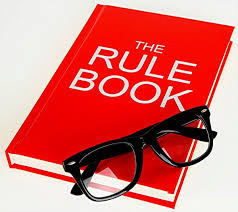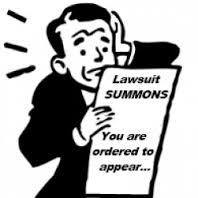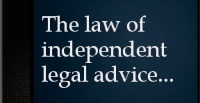Rebutting the presumption of a resulting trust for the gratuitous transfer of property was discussed in Wong v Huang 2012 BCSC 975 and Frischnecht v Nowak 2018 BCSC 1430. In both cases the court reviewed the relevant authorities and found that the transfers of property in both cases had rebutted the presumption of a resulting trust.
The presumption of a resulting trust is rebuttable by proof on a balance of probabilities, given that were a transfer of property has been made for no payment, the onus is on the transferee to prove that a gift was intended.
Wong v Huang cited the leading case of Pecore v Pecore 2007 SCC 17 at para. 24. – Only the intention of the transferor is relevant, and intention is determined at the time of the transfer.
Pecore is the leading case on the presumption of resulting trust with respect to gratuitous transfers of property from one individual to another, and the legal decision as to whether the property should be treated as a gift or whether the property is subject to return or repayment as it is held in trust.
Pecore discussed two presumptions namely the presumption of a resulting trust and the presumption of advancement. The court described the nature of these competing presumptions at paragraph 24, and 27 – 28 respectively:
24. The presumption of resulting trust as a rebuttable presumption of law and general rule that applies to gratuitous transfers. When a transfer is challenged the presumption allocates the legal burden of proof. Thus where a transfer is made for no consideration, the onus is placed on the transferee to demonstrate that a gift was intended- this is so because equity presumes bargains, not gifts.
27. The presumption of resulting trust is the general rule for gratuitous transfers. However, depending on the nature of the relationship between the transferor of the transferee, the presumption of resulting trust will not arise and there will be a presumption of advancement instead. If the presumption of advancement applies, it will fall on the party challenging the transfer to rebut the presumption of a gift.
28. Historically, the presumption of advancement has been applied in two situations. The first is where at the transfer is a husband and the transfer is his wife ( Hyman v Hyman (1934) 4 DLR 532 (SCC) at para. 538. The second is where the transfer is a father in the transferee as his child, which is at issue in this appeal.
Regardless of which presumption applies, either presumption may be rebutted by evidence on the ordinary civil standard of a balance of probabilities.
Pecore limited the rebuttable presumption of advancement with regard to gratuitous transfers from parent to child and be limited in application to transfers by mothers and fathers to minor children.
In the Wong decision, the transfer was made to the defendant minor child, but the plaintiff was not his mother or father. Thus the presumption of advancement did not apply.
Since the transfer was made without consideration, the presumption of resulting trust applied unless that presumption is rebutted on the balance of probabilities. Therefore the onus of proof was on the minor defendant to prove on a balance of probabilities that the plaintiff’s intention in making the transfer was to complete a gift of a one half interest in the property to the defendant.
It is only the intention of the plaintiff transferor that governs, not the intention or understanding of the transferee or anyone else- Rascal Trucking : Kerr v Baranow 2011 SCC 10.
It is only the transferor’s intention at the time of the transfer that matters. Thus if a transfer later regrets the transfer or changed his mind about his intentions, that does not change the nature of the transaction.
In the Wong decision the plaintiff was an 86-year-old man who transferred a one half interest in his property to his six-year-old great-nephew. At the time of trial the nephew was 12 years old.
The plaintiff and the infant defendant had a close relationship at the time of the transfer of the property, and the plaintiff was estranged from his own children.
The court concluded in Wong that on the balance of probabilities the plaintiff’s intention when he made the transfer six years before the trial date, was to make an unconditional gift to the defendant of the one half interest in the plaintiff’s home.
The court viewed several aspects to the circumstances relating to the transfer, and found that it was not an isolated event, but instead must be viewed in the context of the plaintiffs expressed intentions going back to 2000 when the defendant was born. At that time the plaintiff wrote letters that he signed to transfer to change the ownership of the home to himself of the defendant as co-owners, indicating he would be leaving the remainder of his estate to the defendant as well.
The plaintiff wrote letters indicating that the transfer had been completed, and that the ownership certificate indicated that he and the defendant were co-owners. The plaintiff’s lawyer created a joint tenancy, and not a tenancy in common, with the effect that so long as the joint tenancy was not severed, the entire legal interest in the property would best of the defendant, outside of his will, upon the plaintiff’s death.
In the Frischknecht decision the plaintiff and the defendant were unrelated but had a relationship akin to that of mother and son. The plaintiff signed over her share of the property to the defendant at a time when she was suffering from diminishing mental capacity.
Her biological children who lived in Europe challenged the transfer.
In May 2001, the plaintiff and the defendant executed a co- ownership agreement, which when read by the court, was evidence of an intention by the plaintiff to transfer the property as a gratuitous gift to the defendant.
Despite the plaintiffs diminishing mental capacity, the lawyer who handled the transfer testified that the plaintiff clearly understood what she was doing and wanted to gift her half of the property to the defendant.
The court was impressed with the evidence of the experienced, careful and diligent solicitor, who testified that there were no issues relating to undue influence or mental competency.
The court concluded that the gift was unconditional and that the plaintiff intended to gift her interest in the property without any conditions attached, and specifically without any conditions relating to the repayment of mortgage funds. The plaintiff intended that the property be transferred to the defendant without consideration.
In both cases the court found evidence sufficient to rebut the presumption of resulting trust.










